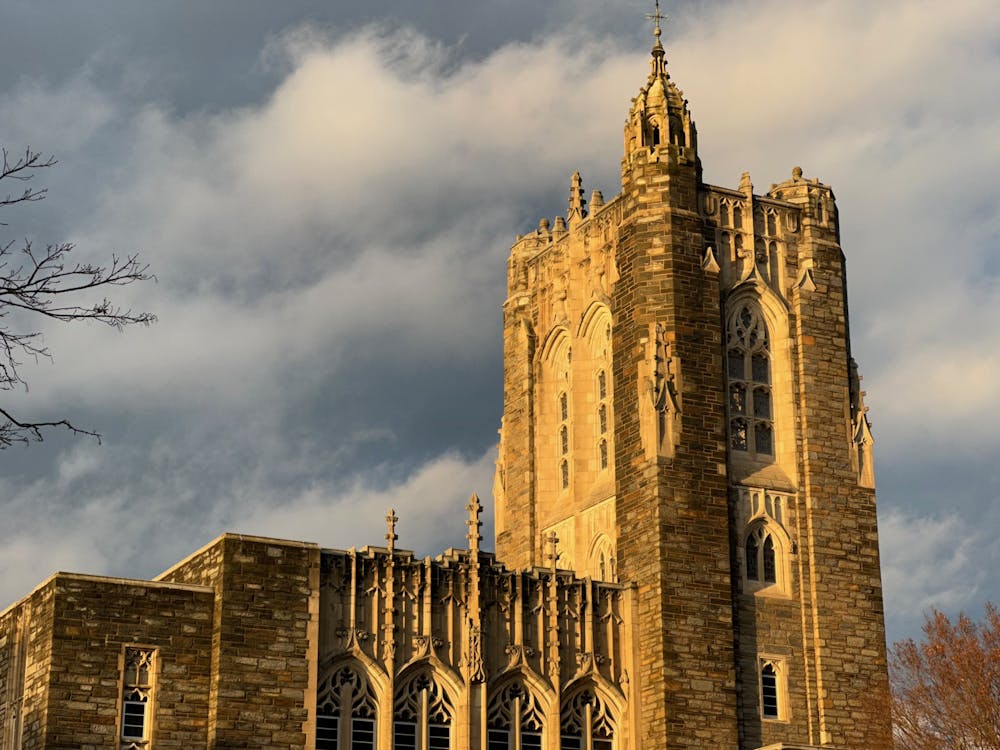In a quest to achieve historical consciousness in my first history class at Princeton, I frequently grappled with the question of historical erasure: What becomes of an instance of joy, suffering, or loss that goes unrecorded? What becomes of a life without its memory? I sit today with a deepened appreciation for the importance and power of bearing witness — an act that has been critically misunderstood and deeply underemployed by many at Princeton post-Oct. 7. Members of the Princeton community must partake more actively in this necessary practice.
On that day, more than 1,200 Israelis were killed and over 200 were kidnapped by the militant group Hamas. I try to imagine what it would feel like to have my mother murdered or my father kidnapped. While my imagination is limited for much of what I do not witness in the flesh, I can watch the interviews of returned hostages recalling their haunting experience and the names and images of the kidnapped children and their families. Through the intentional act of bearing witness, numbers in statistics become faces, and real testimonies transform words into living, breathing people.
In the months that followed, over 26,000 Gazans have been killed in retaliatory attacks by Israeli forces throughout occupied Gaza. I try to imagine what it would feel like to have my home crushed down on itself in my sleep, inhaling concrete as a cruel realization settles that nobody will hear, record, or remember this suffering. With dozens of journalists being killed, threatened, and denied entry for reporting in Gaza’s occupied territory, the ‘bearing witness’ of Gaza has been a volatile experience. My understanding of this violence has been reliant on social media apps like Instagram, such as through following the sporadic Instagram posts from journalists actively evading bombing.
For citizens across the world, social media has been an integral tool of organization, of activism, and, most importantly, of bearing witness. In a conflict where the documentation of suffering is deliberately controlled and critically dangerous, the act of viewing bears — and should bear — a more solemn significance.
Yet social media’s relevance and impact on this conflict has been misunderstood, including by a piece from my colleague at The Daily Princetonian. Admittedly, social media can serve as a channel for dangerous propagandizing and virtue signaling. However, to say that posting against illegal occupation immediately constitutes privileged and hollow irresponsibility is not only wrong, but weaponizes the symbolic power of bearing witness against itself. You don’t need to do everything in power to alleviate an issue in order to witness or post about it. Does that posting diagnose them of privileged cowardice without action? Or can it also be an indicator of a willingness to acknowledge, advocate for, and bear witness to suffering? And when those at the forefront of the conflict are begging for their voices to be heard, is acknowledging and sharing that suffering not a due moral obligation?
When we see our lives here as so distinctly removed from conflict, we allow ourselves the convenient excuse of helplessness. There is nothing substantial we can accomplish, we tell ourselves, because some of us have the privilege of being away from direct violence.
This excuse minimizes both the symbolic and practical value that bearing witness holds: by believing that privilege automatically deems the witness irresponsible, we fail to see value in ‘witnessing’ itself. When we refuse to believe in the importance of the witness, we consequently become less inclined to take substantive physical action or activism. However, we have just as much of a responsibility to combat the notion that ‘witnessing is futile’ as we do to acknowledge the privilege of living free from aerial bombing.
This is especially true when it comes to Israel and Palestine: “The issue of Palestine and Israel is often spoken of as being too complicated for outsiders to understand,” says professor and psychologist Hala Alyan. “This can be a clever form of silencing and erasure: the exceptional mystification of the history of the region, even when there is a sea of voices — historians, activists, journalists, Palestinian and Israeli alike — who are explaining exactly how it can be known.” Such a way of thinking allows individuals to reduce the repercussions of a conflict felt beyond its borders: what does it matter if elitist Ivy League students are allegedly sprayed with chemical agents at protests, racially targeted, or doxxed, while there are people whose bodies are being disintegrated by sprays of gunfire? What matters of our social media posts, protests, speak-ins, or boycotts, when everything we do here is done in a hubris of privilege and ignorance of true suffering? Of course, to say that America’s matters of sociopolitical struggles following the conflict are equivalent to matters of mass killing would be blatantly wrong — but reducing it to an experience of privileged nothingness would not be any more helpful.

That's not to say privileged activism can still materialize responsible change. In December, the United Nations High Commissioner for Human Rights warned of a pandemic of dehumanization unfolding as the conflict progressed. Dehumanization is a tyranny that colonizes the mind — a tyranny that has most recently materialized with the current flood of anti-Palestinian and antisemitic hate — and this tyranny is perpetuated by our grave inability and fear of participating in activism from our ivory tower. This inability exhausts us of our empathy and makes us believe that our inability to witness incomprehensible pain is our natural reaction to it. But we must mobilize against this exhaustion. Bearing witness is a humanizing act — it functions as a spark to more remote, responsible ways of recognizing suffering. Our fear of privilege shouldn’t preclude us from this innate human ability.
Siyeon Lee is a first-year from Seoul, South Korea intending to major in History. She can be reached at siyeonlee@princeton.edu, or @siyeonish on Instagram.









